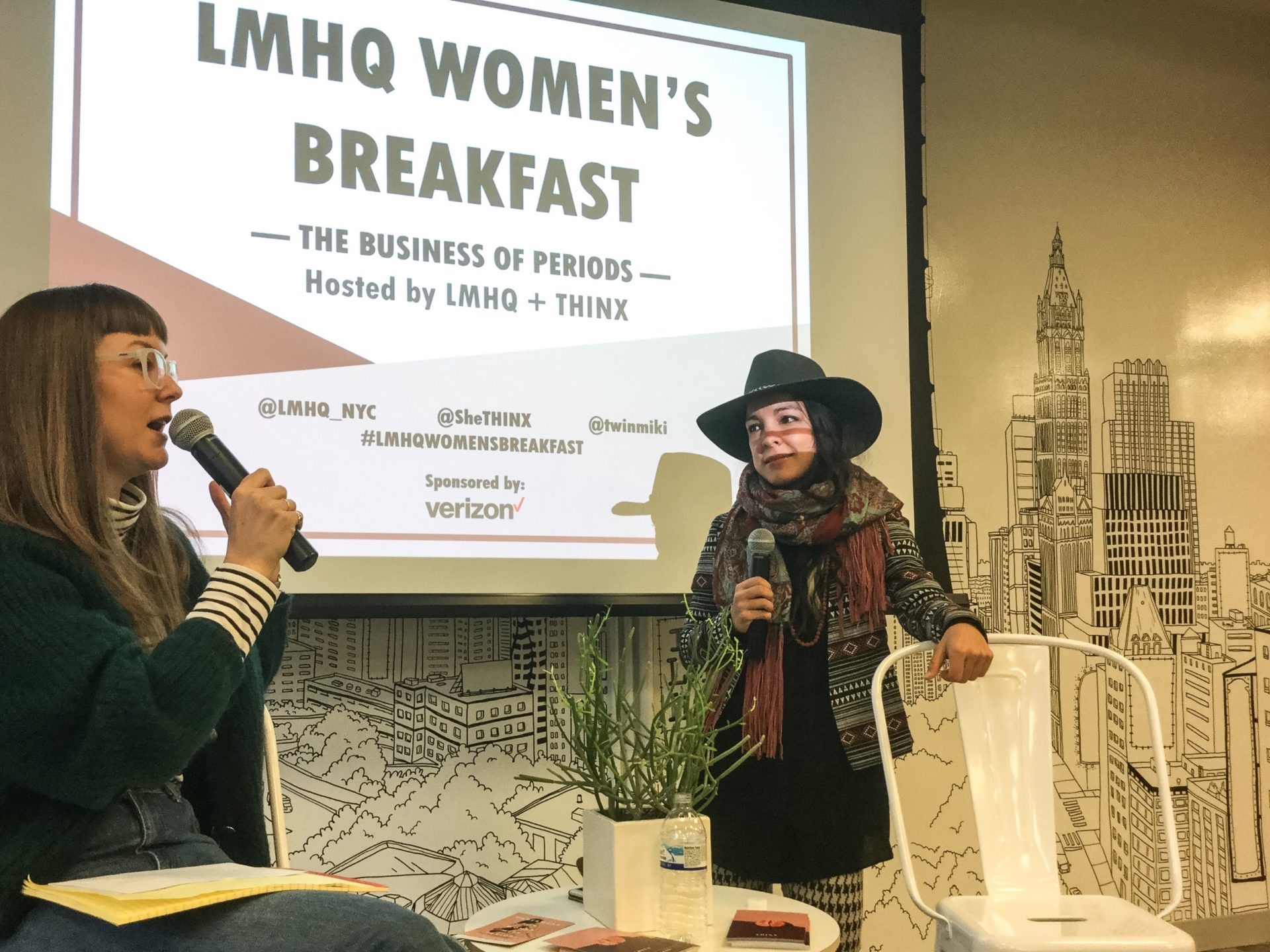
Why have we seen almost no innovation in the feminine hygiene space? Mostly because we even feel the need call it “feminine hygiene” at all, softening our speech with terms like “that time of the month” and “women’s troubles” to cover up the embarrassment. The taboo of menstruation means innovators feel uncomfortable tackling its management, leaving today’s women and girls stuck with basically the same products available to them 75 years ago.
One company is working to change that. Thinx, founded by Miki Agrawal and her twin sister Radha, produces period-proof underwear designed to absorb blood and resist stains. Pint-sized and joyfully loud, Miki spoke at LMHQ in Lower Manhattan on Tuesday as part of the membership club’s Women’s Breakfast series.
Talking about “blood” and “stains” might make some feel squeamish, but periods are an important topic to address, not just for women’s comfort and health, but for their success. Plainly put, periods are holding women and girls back. In the U.S., this may mean being too afraid to play sports or holing up at home during menstruation. But in countries without affordable access to period products, the impact is more serious and the implications for economic development loom larger.
One out of 10 African girls miss school each month because of menstruation. With no other alternative, they turn to makeshift period products—leaves, old plastic bags, dirty rags—that offer little protection. In Uganda, 94 percent of girls report having problems and feeling embarrassed at school. Many of them end up dropping out altogether.
By taking the shame out of periods, Agrawal says she aims to empower women—and through them the world (it’s called the Girl Effect, and it shows that when girls succeed they bring their families and communities with them). Like TOMS and Warby Parker, Thinx employs a give-back model: theirs donates funds, for every pair of Thinx bought, to help provide one set of reusable AFRIpads to a girl in Uganda.
Agrawal has also launched two other companies that give back to the developing world: Icon, for bladder-leak underwear, that supports fistula surgeries, and Tushy, for bidet attachments, that reduces waste and donates to clean latrines.
Power to the Period People
Why have we seen almost no innovation in the feminine hygiene space? Mostly because we even feel the need call it “feminine hygiene” at all, softening our speech with terms like “that time of the month” and “women’s troubles” to cover up the embarrassment. The taboo of menstruation means innovators feel uncomfortable tackling its management, leaving today’s women and girls stuck with basically the same products available to them 75 years ago. One company is working to change that: Thinx.















